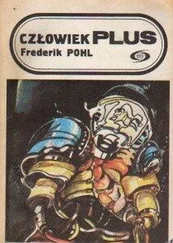Roger’s wings were stirring restlessly, but the eyes were intent on the President.
“So you see,” said the President heavily, “I’m appointing myself your hired hand, Roger. You tell me what you want. I’ll make damn sure you get it. You pick up that phone any time, day or night. They’ll put you through to me. If I’m asleep, you can wake me if you want to. If it can wait, you can leave a message. There’s going to be no more fucking you around in this place, and if you even think it’s happening you tell me and I’ll stop it. Christ,” he said, grinning as he started to stand up, “do you know what the history books are going to say about me? ‘Fitz-James Deshatine, 1943 — 2026, forty-second President of the United States. During his administration the human race established its first self-sustaining colony on another planet.’ That’s what I’ll get, Roger, if I get that much — and you’re the only one who can give it to me.
“Well,” he said, moving toward the door, “there’s a governor’s conference waiting for me in Palm Springs. They expected me six hours ago, but I figured you mattered a hell of a lot more than they did. Kiss Dorrie for me. And call me. If you don’t have anything to complain about, call me to say hello. Any time.”
And he left, with a dazzled astronaut staring after him.
Take it any way you liked, Roger reflected, it was really a pretty spectacular performance, and it left him feeling both awed and pleased. Subtracting 99 percent of it as bullshit, what was left was highly gratifying.
The door opened, and Sulie Carpenter came in, looking faintly scared. She was carrying a framed photograph. “I didn’t know what kind of company you were moving in,” she said. “Do you want this?”
It was a picture of the President, signed, “For Roger from his admirer, Dash.”
“I guess I do,” said Roger. “Can you hang it up?”
“When it’s a picture of Dash, you can,” she said. “It has a self-hanging gadget. Right up here?” She pressed it against the wall near the door and stepped back to admire it. Then she looked around, winked and pulled a flat black camera the size of a cigarette pack out of her apron. “Smile at the birdie,” she said, and snapped away. “You won’t rat on me? Okay. I’ve got to be going — I’m not on duty now, but I wanted to look in on you.”
Roger leaned back and folded his hands on his chest. Things were turning out rather interestingly. He had not forgotten the internal pain of the discovery of his castration, and he had not put Dorrie out of his mind. But neither was perceived as pain any more. There were too many newer, more pleasant thoughts overlaying them.
Thinking of Dorrie reminded him of her gift. He opened it. It was a ceramic cup in harvest colors, ornamented with a cornucopia of fruits. The card said, “This is a way of telling you that I love you.” And it was signed Dorrie .
All of Torraway’s signs were stable now, and we were getting ready to phase in the mediation circuits.
This time Roger was well briefed. Brad was with him every hour — after taking a large share of the President’s ass-kicking, he was chastened and diligent. We deployed one task force to oversee the phasing-in of the mediation circuits, another to buffer the readout-readin of data from the 3070 in Tonka to the new backpack computer in Rochester, New York. Texas and Oklahoma were going through one of their periodic brownouts just then, which complicated all machine data handling, and the aftereffects of the flu were still with the human beings on the staff. We were definitely short-handed.
Moreover, we needed still more. The backpack computer was rated at 99.999999999 percent reliable in every component, but there were something like 108 components. There was a lot of backup, and a full panoply of cross-input paths so that failure of even three or four major subsystems would leave enough capacity to keep Roger going. But that wasn’t good enough. Analysis showed that there was one chance in ten of criticalpath failure within half a Martian year.
So the decision was made to construct, launch and orbit around Mars a full-size 3070, replicating all the functions of the backpack computer in triplicate. It would not be as good as the backpack. If the backpack experienced total failure, Roger would have the use of the orbiter only 50 percent of the time — when it was above the horizon in its orbit and thus could interlink with him by radio. There would be a worst-case lag of a hundredth of a second, which was tolerable. Also he would have to stay in the open, or linked with an external antenna otherwise.
There was another reason for the back-up orbiter, and that was the high risk of glitches. Both the orbiting 3070 and the backpack were heavily shielded. Nevertheless they would pass through the Van Allen belts at launch, and the solar wind all through their flight. By the time they got to the vicinity of Mars the solar wind would be at a low enough level to be bearable — except in the case of flares. The charged particles of a flare could easily bug enough of the stored data in either computer to critically damage its function. The backpack computer would be helpless to defend itself. The 3070, on the other hand, had enough reserve capacity for continuous internal monitoring and repair. In idle moments — and it would have many idle moments, as much as 90 percent of its function time even when in use by Roger — it would compare data in each of its triplicate arrays. If any datum differed from the same datum in the other arrays it would check for compatibility with the surround data; if all data were compatible, it would examine all three arrays and make the one aberrant bit conform with the other two. If two did not conform, it would check against the backpack if possible.
That was all the redundancy we could afford, but it was quite a lot. On the whole, we were very pleased.
To be sure, the orbiting 3070 would require a good deal of power. We calculated the probable maximum draw against the probable worst-case supply of any reasonable set of solar panels, and concluded that the margin was too thin. So Raytheon got a preempt order for one of its MHD generators, and crews went to work on Route 128 to modify it for space launch and automatic operation in orbit around Mars. When the 3070 and the MHD generator arrived in orbit they would lock to each other. The generator would supply all the power the computer needed, and have enough left over to microwave a useful surplus down to Roger on the surface of Mars, which he could use both to power his own machine parts as needed or for whatever power-using equipment he might like to install.
Once we had completed all the plans we could hardly see how we had thought we could get along without them in the first place. Those were happy days! We requested, and were promptly given, all the reinforcements we needed. Tulsa went without lights two nights a week so we could have the energy reserves we needed, and Jet Propulsion Laboratories lost their entire space-medicine staff to our project.
The read-in of data proceeded. Glitches chased themselves merrily around both new computers, the backpack in Rochester and the duplicate 3070 that had been rushed to Merritt Island. But we hunted them down, isolated them, corrected them and were keeping right on schedule.
The world outside, of course, was not as pleasant.
Using a home-made plutonium bomb made out of materials hijacked from the breeder reactor at Carmarthen, Welsh nationalists had blown up the Hyde Park Barracks and most of Knightsbridge. In California the Cascade Mountains were burning out of control, the fire-fighting helicopters grounded because of the fuel shortage. An exploding epidemic of smallpox had depopulated Poona and was already out of control in Bombay; cases were being reported from Madras to Delhi as those who were able fled the plague. The Australians had declared Condition Red mobilization, the NPA had called for an emergency meeting of the U.N. Security Council, and Capetown was under siege.
Читать дальше












